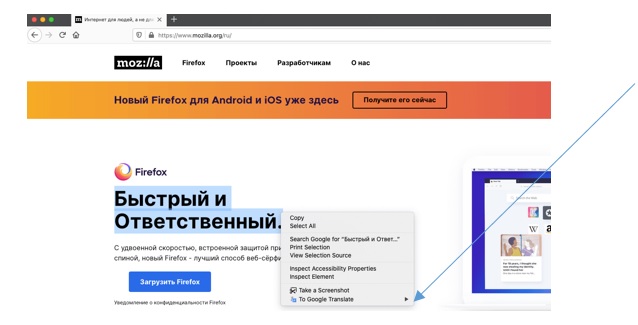
Like many other industries, veterinary professionals are upgrading their internal systems to utilize the efficiencies of cloud-based technology. These changes have become necessary due to increase of cyber-threats for veterinarians and animal hospitals. Here's why it's time to consider buying veterinary cyber liability insurance.
Here’s the Reader’s Digest version of why cyber security matters to vet practices:
Any business that stores sensitive data in an electronic device or on the cloud is at risk for cyber-threats. According to the Identity Theft Resource Center, thefts and accidents divulged more than 415 million employee and customer records in 2020. Today, veterinary businesses rely more on digital technology with each passing day. Clinics seeking to digitize their operations must carefully consider cyber security’s role in this industry to avoid a catastrophic data breach.
Cyber security greatly matters in the veterinary business, from preserving patient data to ensuring operational continuity.
The Veterinarian Cyber-Threat is Growing
Veterinary practices are a cybercrime magnet. It’s not hard to see why. Most practices store a treasure trove of customer information, everything from Social Security and driver’s license numbers to bank account and pet-health information. Cybercriminals use this data to perpetrate identity theft fraud and other nefarious acts against your pet parents. But, the threat isn’t limited only to your pet owners. Hackers also want access to your valuable personally identifiable information (PII) to perpetrate fraud against you, whom they presume is an affluent medical professional.
Another reason why veterinary businesses are prime cyber-targets is that they are growing users of online applications, such as appointment systems, cloud file storage or online bill payment services. Plus, let’s not forget veterinarians and their staff often post pet photos and information about pet parents on social media platforms, which criminals can also use to commit identity theft.
Finally, veterinarians and their staff are constant computer users, accessing email and the internet countless times each day. For this reason, they are at high risk of falling prey to “social engineering” scams in which hackers prey on human nature to get users to click on malicious URLs.
The Cyber-Threat Is Real
Cybercrime is not a theoretical problem. Veterinarians around the country fall prey daily to cyber fraud. Plus, they make mistakes, such as losing their laptops and succumbing to phishing attempts (efforts to get them to click on URLs that launch malware).
To illustrate our point, here are some cyber security incidents that have happened to veterinarians and their staff across America:
- Someone broke into a veterinary practice’s facility and stole a laptop containing information on thousands of pets and their owners.
- A third-party website vendor serving veterinarians had a data breach. It resulted in pet owners who used the vendor’s online bill payment service having their names and sensitive personal information divulged on the internet.
- A criminal encrypted a veterinary hospital’s computer system, making it impossible for staff to access patient records, bill for care or handle other aspects of the business.
- As part of its effort to go entirely paperless, a veterinary practice disposed of employee files in an unlocked dumpster. When former employees learned of the breach, which compromised their PII, they launched a class action lawsuit against their former employer.
- The mother of all veterinary cyber-incidents occurred in 2019 when a global chain of 700 animal care facilities suffered a major ransomware attack. Thousands of employees lost access to patient records, financial applications and practice management tools. The incident resulted in millions of dollars in economic losses.
The Heavy Costs of a Veterinary Data Breach
Consider how a cyber-breach can harm a veterinary practice or hospital. First come the costs of determining what happened, repairing the damage and hardening defenses to reduce the likelihood of future breaches.
Then come the costs of notifying clients their private information is now public. States typically require businesses with breaches to provide free credit monitoring services to all affected customers for some time.
Regulatory fines and penalties are another typical cost, as are third-party liability lawsuits that can result in hefty financial settlements and judgments.
Add up these costs and veterinarians will potentially face substantial outlays to return their business to its previous state. That assumes recovery is possible; many vet practices that suffer a breach will fail to reopen.
Assuming they recover, breached veterinary businesses often suffer a permanent blackmark on their reputation. As a result, they will find it harder to add new customers, avoid negative online chatter and recruit new staff. These additional costs will burden the business for many years to come.
The Role of Veterinarian Cyber Liability Insurance
Developing a cyber security plan is essential for keeping your business protected against cybercrime. But forging a robust defense isn’t enough. You should also address the difficulty of maintaining a 100% effective cyber defense for years to come. Most experts believe this is impossible to achieve.
Solution? Transfer your risks to an insurance company. When you buy Cyber Security Veterinary Insurance, your insurer will pay your first- and third-party costs for you. The former are those you’ll incur to diagnose the breach and repair the damage, including regulatory fines and penalties. Third-party costs entail financial settlements and judgments a court orders you to pay for allowing a data breach to occur, harming your customers financially.
To avoid paying for first- and third-party costs yourself, it’s essential to have insurance that pays them for you. Your data breach will still sting, but at least your cyber veterinary liability insurance will reduce the pain.
For information on 360 Coverage Pros Cyber Veterinary Liability Insurance, review our coverage information.







Share this page.